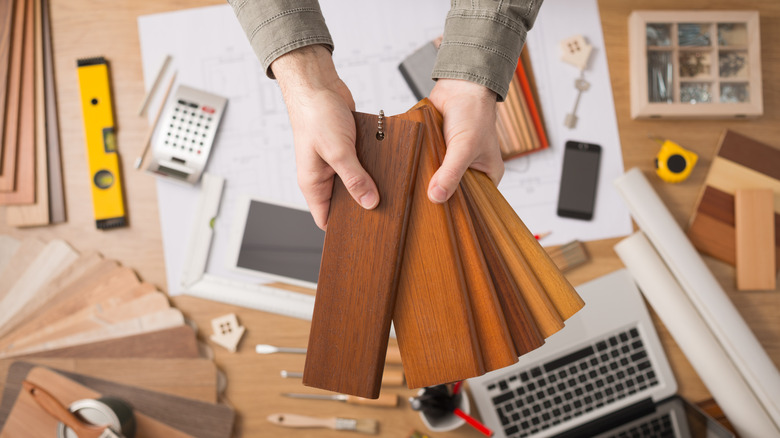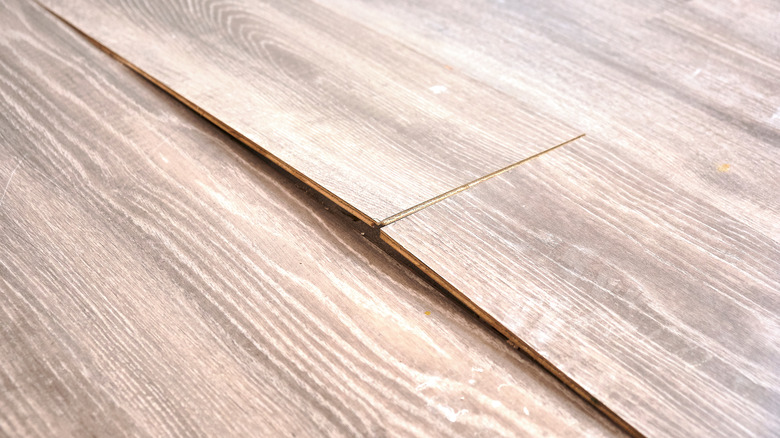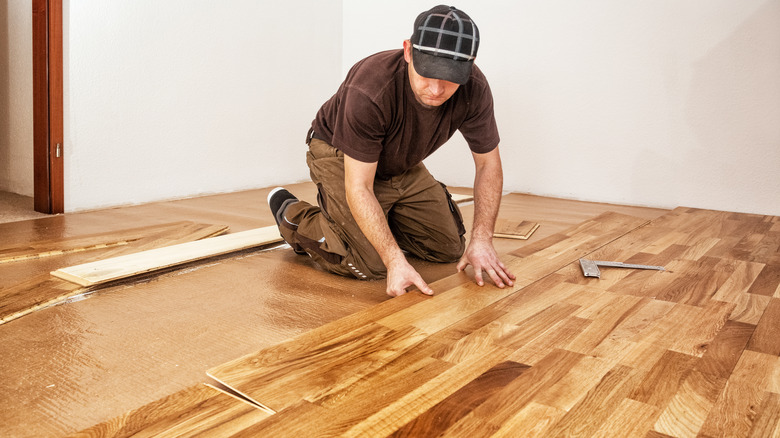What Are The Downsides Of Engineered Wood Flooring?
So, you've decided it's time to ditch that worn carpet or outdated tile in one or more areas of your home. That's a super first step in updating your abode. But looking at all the options for replacements, including hardwood flooring and engineered wood flooring, can be overwhelming.
Understanding the differences between hardwood and engineered flooring is the key to deciding what will work best for you. Hardwood flooring is made from a solid plank of wood and is sometimes referenced as solid wood flooring. Engineered wood flooring, meanwhile, is made to emulate the appearance of hardwood flooring. The difference is that it has a thin layer of solid wood attached to a plywood backing. If you're familiar with furniture veneers, it's a similar concept.
If economy is important, looking further at engineered wood flooring may be the way to go. Before you decide, however, it's prudent to take a look at some of the drawbacks and advantages in comparison to hardwoods.
Why engineered wood flooring may not be your best option
One of the major drawbacks of floors made of engineered wood is that they can't be refurbished over and over like hardwood floors. Hardwoods can be sanded and stained multiple times, making it easier to change the look of a room or to repair wear and tear. If you have a busy household filled with lots of playtime involving kids and pets, you may want that option. Engineered wood can fade and can only be refinished once, maybe twice, before it must be replaced.
As The Home Depot notes, engineered wood floors tend to be less vulnerable to dampness and temperature fluctuations that occur seasonally. Note, however, that depending on the quality of the flooring and installation, planks can still bow or twist slightly (particularly, if not enough space is added for expansion). They're better than hardwoods when it comes to damp factors, but not as durable as laminates in this regard.
As you shop, you'll also notice that there are fewer options available with engineered wood. The planks tend to be thinner so if you like the look of wider ones this could be an issue. Styles and colors are also more limited in comparison to hardwoods.
Reasons to consider engineered wood flooring
For many people the main advantage of engineered flooring is the cost savings. Depending on the brand and make-up of engineered planks, the price can be far less than solid wood. Given that they look very similar once they're installed, when budget is a main consideration, engineered options may win out.
Engineering wood flooring can also be easier to install than hardwood, offering a do-it-yourself opportunity to save even more cash. Lots of engineered options have click-lock joining systems so they're fairly simple to put in without the help of a pro.
Caring for engineered floors is also about the same as hardwood. Frequent dusting or vacuuming and an occasional damp mop with a cleaner made for wood floors is all that's needed to keep both looking good. When following the manufacturer's care guidelines, engineered flooring can last 20 to 30 years, and possibly longer. If you're not planning on staying in your house any longer than that, you might decide spending the extra money on hardwoods isn't needed and enjoy the same type of look for less money.


